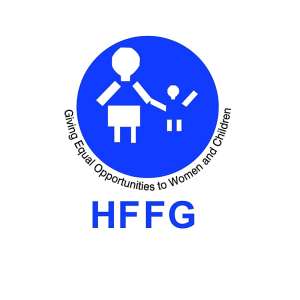
Hope for Future Generations (HFFG Ghana) welcomes the Inaugural African Union (AU) Biennial Joint Meeting of Ministers of Health and Finance for Eastern and Southern Africa Regions which took place on 8 – 9 October 2020.
We applaud the African Union for the leadership on the Africa Leaders Meeting framework and commitments, which has laid a foundation for the Health Financing agenda in Africa. This framework recognises that external partners cannot solely support Africa’s human capital development. It also demonstrates Africa’s leadership towards increased and efficient investments in health.
In Ghana, COVID-19, has led to economic contraction. Given significant revenue shortfalls, most countries, including Ghana are responding to the crisis by increasing spending mostly financed by increasing debt. Ghana has also introduced tax policy measures (including tax cuts and deferrals) to counter the economic effects of Covid-19.
We welcome the temporary debt relief by lending partners through a reduction in debt financing obligations in 2020. The suspension of debt service payments from official bilateral creditors through the Debt Service Suspension Initiative (DSSI) between May and December 2020 will allow for the reallocation of spending to health and other Covid-19-related areas.
We are concerned that prior to the pandemic, Ghana had not met the recommended health investments threshold of 5% of DGP; 15% of total Government Total Expenditure; $86 per capita.
Our concern is not only on health spending in 2020 but also on what may occur in 2021 and in the years to come as government spending falls and normal debt servicing resumes. We therefore submit the following perspectives:
- The Government of Ghana will need to raise additional revenues. This will require building more effective tax systems. Those with the broadest shoulders will need to bear more of the burden, whether through administrative reforms to improve collection, or through changes in tax policy. The efficiency of the tax system can also be improved through the expansion of environmental taxation and cutting wasteful subsidies and tax expenditures (Granger, et al., 2020).
Ensure that savings from the Debt Service Suspension Initiative (DSSI) are reallocated to health and other Covid-19-related expenses and that spending goes where it’s needed the most to ensure investment in basic needs for the most vulnerable.
Once the urgency of addressing the health crisis subsides, the Government should focus interventions on mitigating the lasting economic damages caused by Covid-19. To preserve labour productivity, there is a need to continue to progressively build human capital for health, nutrition and education.
As communities and civil society, we are committed to our role on accountability in ensuring that Ghana builds back better.




 Akufo-Addo spotted ordering chiefs to stand for his handshake
Akufo-Addo spotted ordering chiefs to stand for his handshake
 Akufo-Addo ‘disrespects’ every chief in Ghana except Okyenhene — NDC Communicato...
Akufo-Addo ‘disrespects’ every chief in Ghana except Okyenhene — NDC Communicato...
 Supreme Court clears way for dual citizens to hold key public positions
Supreme Court clears way for dual citizens to hold key public positions
 Be transparent, don’t suppress the truth – Prof. Opoku-Agyemang to Jean Mensa
Be transparent, don’t suppress the truth – Prof. Opoku-Agyemang to Jean Mensa
 ‘I won’t tell the world I was only a driver’s mate during challenges’ – Prof Jan...
‘I won’t tell the world I was only a driver’s mate during challenges’ – Prof Jan...
 We’ll prosecute corrupt officials of Akufo-Addo’s govt – Prof Jane Naana
We’ll prosecute corrupt officials of Akufo-Addo’s govt – Prof Jane Naana
 [Full text] Acceptance speech by Prof Jane Naana Opoku-Agyemang as 2024 NDC Runn...
[Full text] Acceptance speech by Prof Jane Naana Opoku-Agyemang as 2024 NDC Runn...
 Election 2024: Don’t be complacent, we haven’t won yet – Asiedu Nketia cautions ...
Election 2024: Don’t be complacent, we haven’t won yet – Asiedu Nketia cautions ...
 Election 2024: Stop fighting over positions in Mahama’s next govt – Asiedu Nketi...
Election 2024: Stop fighting over positions in Mahama’s next govt – Asiedu Nketi...
 Prof Jane Naana Opoku-Agyemang will restore dignity of vice presidency – Fifi Kw...
Prof Jane Naana Opoku-Agyemang will restore dignity of vice presidency – Fifi Kw...
